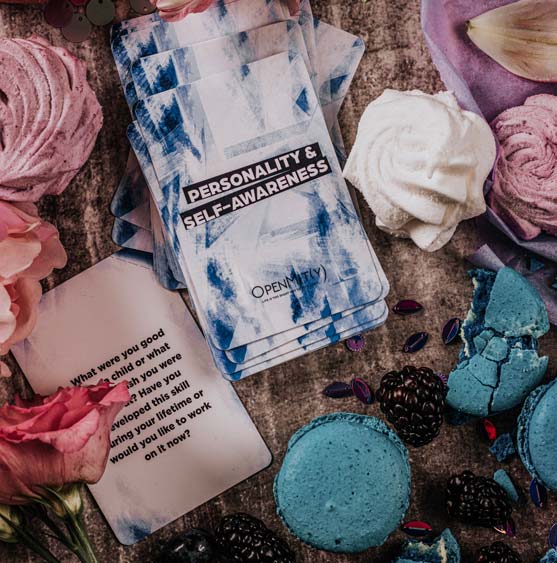Do Opposites Attract?
We’ve all been exposed to the concept of opposites attracting to form a meaningful relationship ever since we were young. We see it played out as tropes in movies and books and watch out friends couple up with the most unexpected partners. However, is this actually an innate attraction we have as humans?
Why are we So Sure Opposites Attract?
The truth is, we aren’t sure if opposite minds really attract. In fact, many research studies suggest that opposites don’t attract, or better yet, don’t last. Meanwhile, others argue that this opposition is necessary to create a layered and complementary pairing. The research is highly contradictory, but still valid in our analysis nonetheless.
It Comes Down to Beliefs and Values
Science has found that when it comes down to your beliefs and values, your partner should be on the same line as you. People that have broadly different beliefs and values are doomed to not having a long-lasting relationship.
Beliefs and values are the statues you live your life based on. This can come down to:
- family life,
- religion,
- political affiliation,
- and other factors that make up your core moral code.
Research(1) has found that even as preschoolers, we are attracted to those who we have something in common with. Of course, this is in a friendly connection, but we can assume that the same can be applied to romantic partnerships.
We can relate this back to another broadly used saying, “birds of a feather flock together. Research(2) has actually found that you tend to hangout with people that are similar in attractiveness level as you. Initially we may be more attracted to those that are similar looks-wise to us. Then, if their values match with ours, they can become a long-term partner or friend.
We created Meaningful Conversation starters for couples to dig deep into Valuses and Beliefs topics. A quote from customer review:"the gist is to help couples navigate and get to a deeper level- questions are designed to create openings for couples to safely be vulnerable and breach sensitive subjects."
Complimentary Doesn’t Mean Similar - Opposites Attract Examples
Despite research telling us that we need to have similar core beliefs to someone, this doesn’t account for the existence of complimentary personalities. Complimentary often doesn’t mean being the same as someone else.
Research studies (3) have tested out various factors on couples to see if what is complimentary is also similar in nature. They found that while beliefs and values were often similar, other factors in a personality were not.
For example, dominant people are most compatible with submissive people. This is why you see pairings of a shy partner with an outgoing partner. These traits complement each other best when they vary.
Filling in My Weak Spots with Your Strengths
This study of complimentary compatibility proves that parts of human attraction can succeed off of opposite strengths. You want a partner who can fill in those gaps you have in your personality and life.
For example, if you know you’re awful with technology, you may be drawn to a person who’s good with tech. This person patches up your weak spots, leaving the two of you able to do more than you could ever do on your own.
This varying of strengths with your partner can be what leads to long-term relationships. This diversity of strengths can serve you well into the future with all your endeavors.
Will They Last?
If we go back to looking at couples that have similar traits, we find in certain studies (4) that the most complimentary and similar couples were the divorced ones. This could be for a number of reasons, but it does show us that perhaps that difference in personality traits needs to exist to sustain a long, healthy relationship.
However, this notion of compatibility was also only seen with highly-satisfied couples. In another study (5) , long-lasting marriages turned out to be less compatible than that of divorced couples. However, those that were highly satisfied in their ongoing marriage were also highly compatible.
From this, we can see that differences in people may be important for sustaining a long relationship, but still similarities must be had if you want to create a happy long-term relationship.
Our Meaninful Conversation starters game has also a "goal setting list", what our customer is saying: "I love the goal setting aspect as these create a way to put words into action and provide a “measuring stick” to see progress made- that can be motivating in itself! I love, love, love the challenges as well.. for example, one can accept to write down a few ideas they’d like to do for their partner that week (a challenge!) These are small, simple things that feel so big when received.. ie., make dinner together, tell a partner an affirmation or, memory by a simple note or song, it can be a surprise “I love you” text for no reason, and so on.. Not only does this give to your partner a piece of you- It helps develop positive patterns when put into action and that’s a win/win for all! I love the challenge isn’t difficult or $ involved either, it’s just being cognizant of the other persons needs. Better yet, this confirms x1 person is truly listening and the other is being heard- hallelujah..!!"
We Look for the Good in Others
If we are naturally cold and unapproachable in our mannerisms, it’ll probably never change. Your personality and temperament have been evolving ever since you were a baby, so no matter how hard you try, you won’t be able to honestly change the personality you’ve been given.
This can lead us to wanting to find these traits we admire, but can’t have, in our partners. This is why the friendly partner is attracted to the demure partner. This is why the high-strung partner is attracted to the relaxed and laid-back partner. We find the traits we want the most for ourselves and see how we can acquire them in our lives through another person.
The Verdict
It’s not a cut and dry answer to if opposites really do attract. Science and research flips both ways in their studies and theories. However, an overlying theme of compatibility is found.
As we saw, with certain traits, compatibility means being different from your partner. These are the more personality driven traits, like extroversion and temperament. Then, with more over-arching beliefs and values, a similarity means compatibility for that couple.
We can think of opposition and compatibility like two pieces in a puzzle. On one hand, differences in both sides are needed to create a new picture. However, they still need that base compatibility in order to connect together.
Finding a partner that just clicks with you is the secret to opposition and similarity. Couples that are too similar are bound to not work out and couples that are too different stand no chance either. Finding compatibility, whether that’s in your similarities or differences is what matters in the end.
Source:
[1] Newcomb, T. M. (1961). The acquaintance process. New York: Holt, Rinehart & Winston.
[2] Halberstadt J, Jackson JC, Bilkey D, Jong J, Whitehouse H, McNaughton C, et al. (2016) Incipient Social Groups: An Analysis via In-Vivo Behavioral Tracking. PLoS ONE 11(3): e0149880. https://doi.org/10.1371/journal.pone.0149880
[3] Kiesler, D. J. (1983). The 1982 interpersonal circle: A taxonomy for complementarity in human transactions. Psychological Review, 90, 185-214.
[4] Tracey, T. J. G., Ryan, J. M., & Jaschik-Herman, B. (2001). Complementarity of interpersonal circumplex traits. Personality and Social Psychology Bulletin, 27, 786-797.
[5] Markey, P. M., & Markey, C. N. (2007). Romantic ideals, romantic obtainment, and relationship experiences: The complementarity of interpersonal traits among romantic partners. Journal of Social and Personal Relationships, 24, 517-533.
Best selling games
View allFOR LOVING COUPLES
To keep the passion alive
For Loving couples who want to learn and grow together while keeping their passion alive! We want every couples’ bonds to become stronger.















